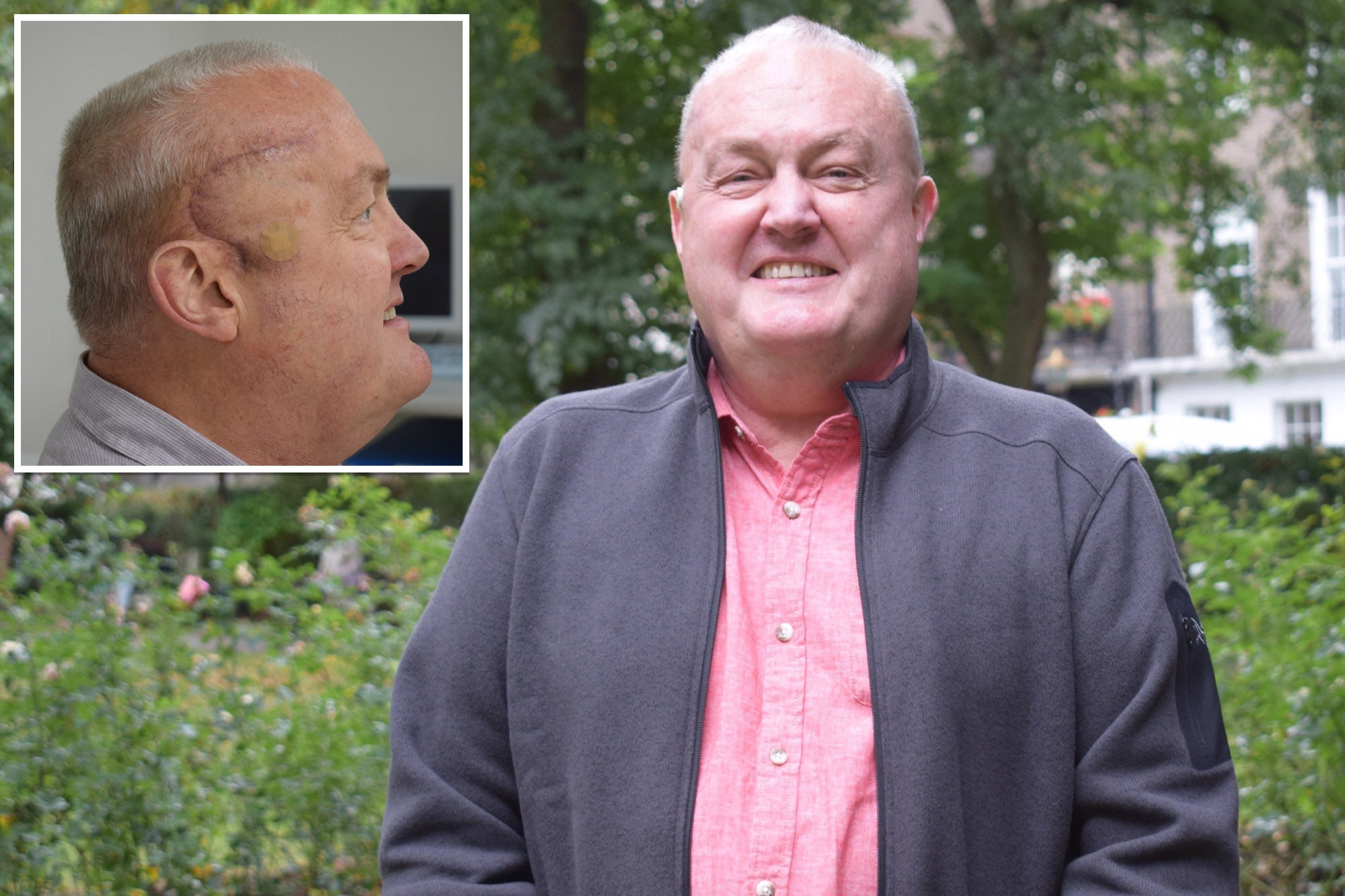
A UK man’s “aggressive” brain tumor was cut down in size by “50%” following a first-of-its-kind treatment for a type of cancer that typically kills patients within 18 months.
The experimental trial was tested on Paul Read, a 62-year-old engineer who was diagnosed with glioblastoma – a cancer that kills most patients within a year and a half – back in December 2023.
To kick off the experimental treatment taking place at the University College London Hospitals NHS Foundation Trust (UCLH), doctors had surgeons remove as much of his tumor as they could and then implanted a tiny device called an Ommaya reservoir right under his scalp, according to BBC.
After the device was placed, doctors would inject low levels of radioactivity directly into the tumor once a week for six weeks. This process was aimed at killing cancer cells while leaving the healthy tissue unharmed.
The findings from the trial were released on Tuesday and had stunning results.
Brain scans revealed Read’s tumor “reduced in size by 50%” at the end of his six-week treatment.
“We’ve just gone through [Paul’s] scan results with him and his end of treatment scan shows a reduction in the tumor, which is really quite remarkable for somebody whose tumor is so aggressive,” said Dr. Paul Mulholland, the UCLH consultant medical oncologist and chief investigator who designed the trial.
“This trial was a lifeline, as the likelihood of survival, according to the data, was a year or less for me,” Read said in a statement from UCLH.
No side effects have been reported by Read besides just feeling “a little more tired.”
In the early days, Read’s symptoms started with a headache during a work trip to South Korea and the pain continued when he arrived back in his small town just north of London. Two weeks later his face dropped to one side and he was diagnosed with glioblastoma.
Quickly after this, his doctors tried to remove as much of the tumor as possible and then he underwent radiotherapy and chemotherapy but the treatment didn’t hold up because the tumor was growing again in July.
The CITADEL-123 trial at UCLH was offered to Read and he “was happy to explore anything” that would treat his condition.
“We are all dealt a hand of cards and you don’t know which ones you are going to get,” Read added.
Before he saw the remarkable results, he said “it will be wonderful if this treatment helps me and if it doesn’t, it doesn’t… it may benefit someone else down the line.”
The medical team has started a second patient on the same procedure and they plan to eventually have up to 40 patients treated in phase 1 of the trial.
“I’m very pleased that this clinical trial is now open. Potentially this is a very powerful approach and I’m already extremely happy with the results from the first patient,” said Dr. Mulholland.














